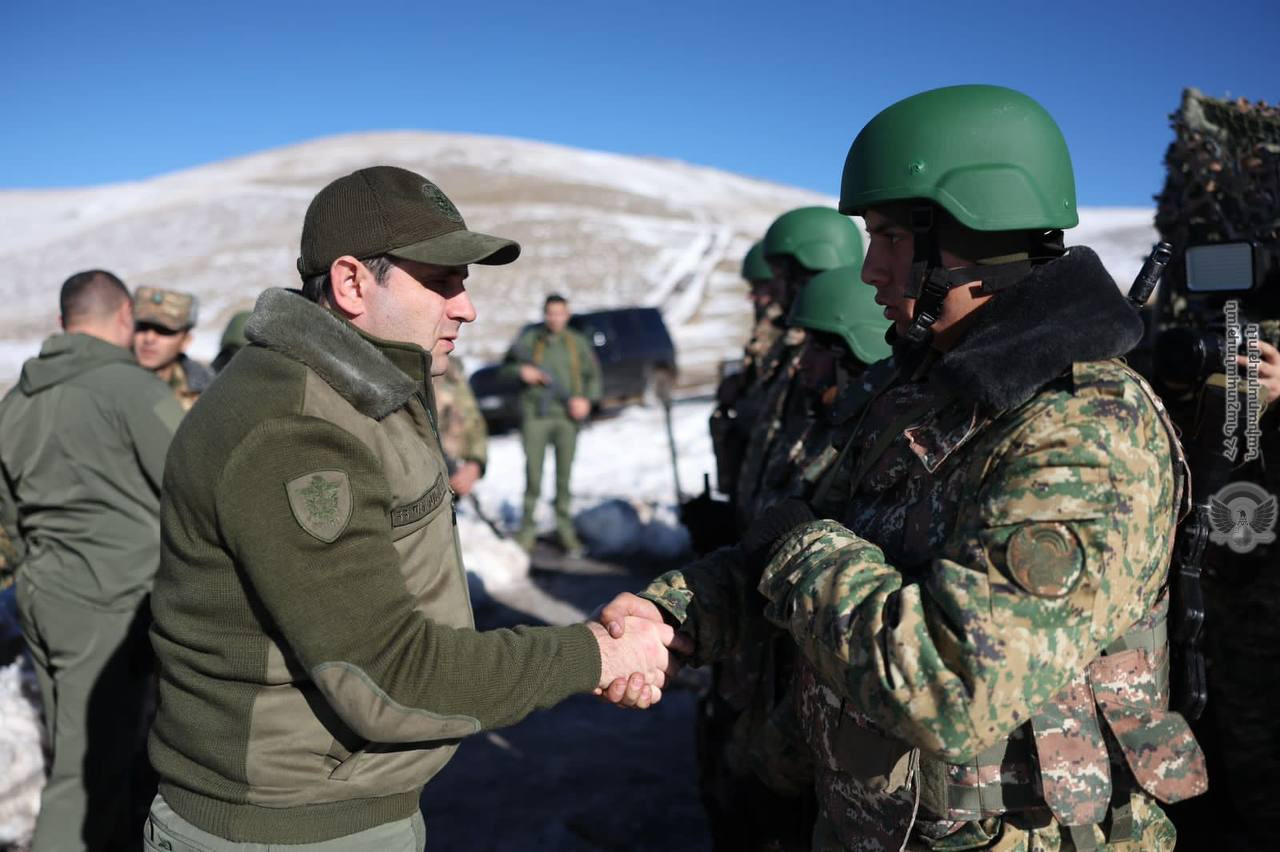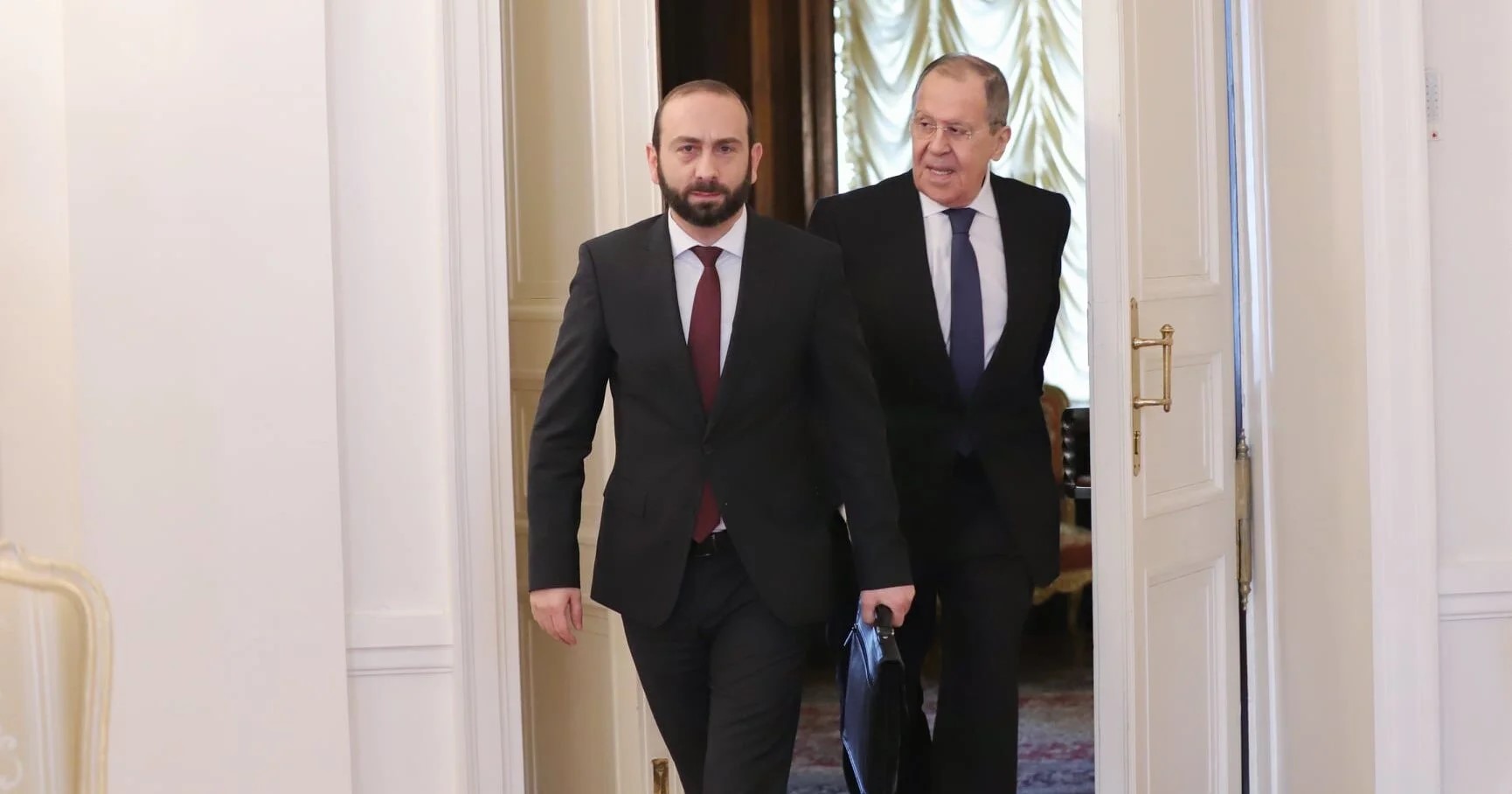Why did Russian border guards not let EU observers get to the Armenian border?
EU observers denied access
“When the latest incident occurred in Nerkin Hand, the EU observation mission did not have access there, unlike the Russians. Russia is present there and it could not prevent the incident,” commented Armen Grigoryan, secretary of the Security council of Armenia, on the situation that unfolded on February 13 on the Armenian-Azerbaijani border. On that day, the Azerbaijani Armed Forces conducted a military operation called “Retribution,” resulting in the deaths of four Armenian servicemen.
The head of the mission, Markus Ritterhe, confirmed that civilian observers from the European Union did not have access to this section of the border. Neither the authorities of Armenia nor representatives of the European mission clarified the reasons. Ritter only said that this issue falls within the competence of Yerevan, as the observation mission is here “as a guest.”
Military expert Karen Hovhannisyan assures that nothing of the sort could have happened on the sovereign territory of the country without the consent of the Armenian side. He believes that Europeans were not allowed access to this section of the border based on Armenian-Russian agreements, enshrined in documents classified as “top secret.”
- “EU-Armenia relations are currently stronger than ever”- Borrell
- Armenia-EU alliance. How to reach this level of relations? Opinion
- “Armenia does not yet have the resources to challenge Russia.” Opinion
“The discussion is not about border regions, but about one section of the border”
“The issue concerns not border regions, but one particular stretch of the border,” stated the secretary of the Security council to journalists, indicating that access for EU observers was restricted only at one section of the border. Armen Grigoryan assured that the Armenian authorities are fully informed. They are aware that Russian border guards did not allow EU observers to travel to Nerkin Hand, and they will try to resolve this issue.
Regarding the activity of the EU mission, it reported that the presence of observers at the border is important to the Armenian authorities. Yerevan believes that the role of civilian observers in ensuring stability in the region cannot be overestimated. Accordingly, the Armenian side continues to support the work of the European patrol on the border with Azerbaijan.
“We were initially aware that problems might occur”
When speaking about access to Nerkin Hand, the head of the European Union civilian mission in Armenia, Marcus Ritter, stated:
Our mission has access to the entire territory of Armenia, except for the territory of Nerkin Hand, which falls under the responsibility of the Russian border guards. And we were initially aware that problems might occur.
“Armenia should address this issue. We do not have direct contact with the Russian forces stationed in Armenia,” he said.
Commentary
Is there any document or agreement according to which only Russian border guards are allowed to be present in the territory of Nerkin Hand? Military expert Karen Hovhannisyan responded to this question:
“This is strictly confidential information related to the establishment of a joint garrison of the Russian Federation and Armenia. Even if I possess this information, I am not authorized to answer.”
Hovhannisyan reminded that there are Armenian-Russian agreements, including cooperation in the field of security. And it is not excluded that EU observers do not have access to this section of the border based on these agreements.
Perhaps the Russian side does not want to admit “representatives of another, in this case opposing, side to the territory under its control,” even if they are civilians.
“Apparently, this is related to the fact that security in this territory is provided within the framework of a joint Armenian-Russian military group,” he says.
Hovhannisyan believes that it’s inappropriate to blame the Russian border guards for not preventing the recent incident. He recalls that in 2023, Azerbaijani armed forces shelled EU observers conducting patrols.
“We should not blame third countries or international organizations. We need to assess the situation objectively. The fact is that Azerbaijan is somehow not inclined towards peace. It constantly tries to provoke and further destabilize the situation,” says Karen Hovhannisyan.




















